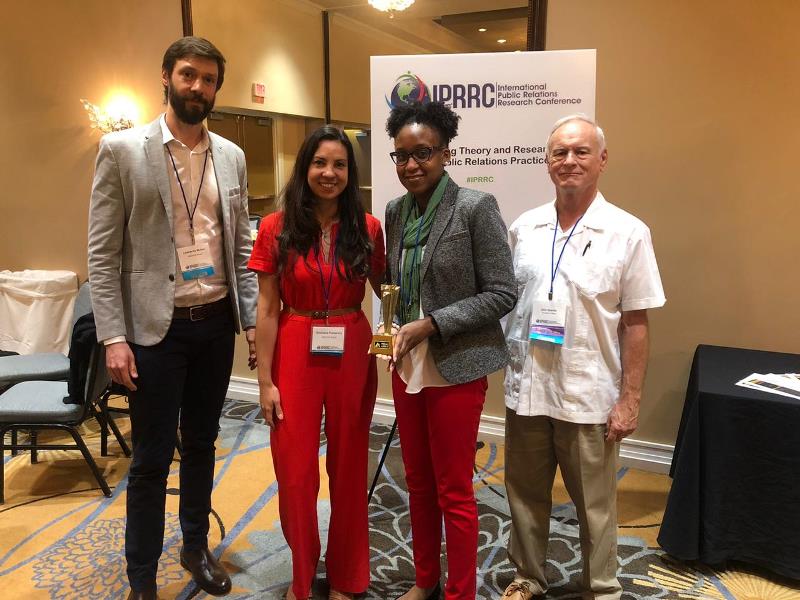International Aberje Award rewards academic study from Virginia

Winner analyzed how public health departments in several countries generate engagement among their followers and identified their main mistakes
In its 12th edition, the International Aberje Award rewards another paper during the International Public Relations Research Research Conference (IPRRC), held from March 5th to 7th, in Orlando (USA). Titled “When Public Health meets Twitter: Communicating #globalhealth issues across the globe”, the awarded study was written by a team of researchers from Virginia (USA). The award was granted to Aloni Hill, from Virginia Commonwealth University, one of the authors of the work. In addition to the International Aberje Award trophy, the winners received a 1,000 USD grant, which will be invested in their research.

Based on a content analysis from 1,200 tweets launched by 12 public health departments in several countries, the paper addresses how these health units seek to engage their audience via Twitter. One of the most curious points is that awareness campaigns, such as breastfeeding and blood donation, have more than 40% of the tweets aimed at this subject, while specific diseases, such as HIV, mental and cardiovascular diseases are less frequent on the social network.
Although cardiovascular diseases are responsible for the majority of deaths in the world population, the survey found that most countries still prioritize infectious diseases in their tweets. The survey also revealed that countries like Brazil, Germany, and New Zealand were the ones that most sought to explore websites other than their own, showing neutrality when passing on information, and relying on other sources.
Another curious fact is that five countries – Chile, Germany, New Zealand, Singapore and South Africa – destined 40% of their tweets to subjects on the agenda of their department of public health, meetings, partnerships, travel, etc. Such information reveals how active the public relations department was in this type of content, which may be useful for the PR agency’s strategy, but not for the population.
Brazil, India, the US, and Italy are the leaders in engagement between countries. Among the conclusions of the paper is that, in order to promote themselves, health agencies must use more of this media; posts should strategically bring up the topics pointed out by the Health Belief Model (HBM) to achieve engagement: perception, susceptibility, severity, benefits, barriers, self-efficacy, and signs of action. In addition, images should be better used in order to visually impact the target audience that you want to reach.
Background
Since 2009, Aberje has recognized and awarded academic Communication papers in organizations centered in South America with the International Aberje Award. The distinction occurs during the International Public Relations Research Conference (IPRRC), in the USA, promoted by the Institute for Public Relations. The selection process for the awarded surveys is evaluated by the IPRRC Advisory Committee and Board of Directors as part of the global competition.
COMENTÁRIOS:
Destaques
- Escola Aberje leva comunicadores para Amazônia em expedição imersiva
- Encontro de líderes debate responsabilidade do setor empresarial e papel da comunicação na COP30
- Aberje realiza reunião presencial com Comitês de Estudos Temáticos em São Paulo
- A comunicação é forte em mercados em que as associações são fortes
- Aberje participa do painel de entidades no 19º Congresso da Abraji
ARTIGOS E COLUNAS
Marcos Santos Maratona da vidaMônica Brissac Thought Leadership: marca pessoal x reputação corporativaLetícia Tavares Liderança comunicadora: um tema sempre atualHamilton dos Santos Comunicação é estratégica na economia contemporâneaCarlos Parente Um salto ornamental para mergulhar no pires



























